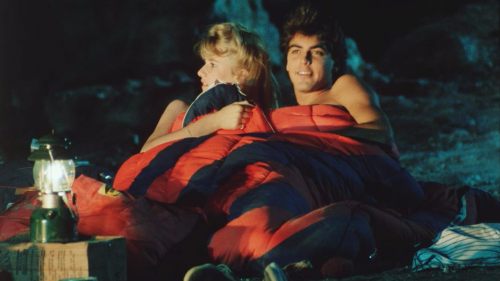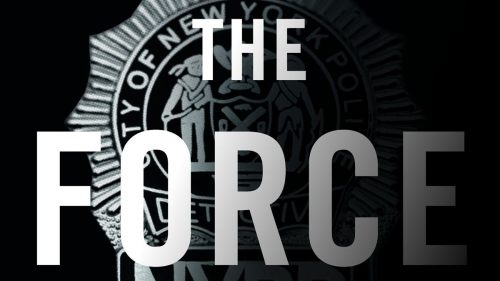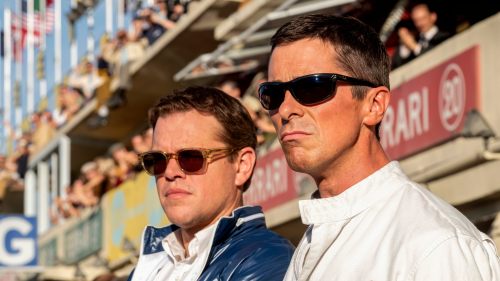SUBURBICON Review: Clooney Loses His Way
Suburbicon has already been described by many onlookers as feeling like two movies uneasily mashed together. That it does, though there’s hardly enough to one of those portions to make a movie, much less the beginnings of a satisfying subplot.
After getting ahold of a Coen Brothers screenplay reportedly dating back to just after their breakout debut Blood Simple, director George Clooney decided to combine it with a script he and his regular collaborator Grant Heslov were working on. That project focused on the Myers family, who in 1957 were the first African-Americans to move into the Pennsylvania suburb of Levittown—and became the target of nonstop harassment and threats. After an opening faux promotional film espousing the perfect suburban life offered by the titular planned community in the ’50s, Suburbicon sees the Mayerses—husband (Leith Burke), wife (Karimah Westbrook) and preteen son Andy (Tony Espinosa)—settling in, facing immediate suspicion and dislike…and then the movie forgets about them for long stretches of running time.
The main plot feels like a dry run for the themes the Coens would later explore to perfection in Fargo, in which crimes are committed by people who have no business thinking they can pull them off. The home of the Mayerses’ neighbors, the Lodges, is invaded one night by a couple of thugs, who tie up and chloroform Gardner (Matt Damon), his wheelchair-bound wife Rose (Julianne Moore), her identical twin sister Maggie (also Moore) and young Nicky (Noah Jupe). Rose doesn’t survive the attack, the purpose of which is initially unclear—but the criminals, Ira (Glenn Fleshler) and Louis (Alex Hassell), aren’t done with the Lodges yet, and the family’s lives go from pretty bad to even worse as the reasons behind what went down are laid bare.
The filmmakers’ motivations, on the other hand, are quite evident: to expose the unpleasant underbelly of idyllic suburbia and do it with a wide streak of dark comedy, in the manner of the Coens and David Lynch (in this context, one image from that promo movie feels like a shout-out to Blue Velvet). But Clooney, who did such a good job soberly exploring a shameful side of the ’50s in Good Night, and Good Luck., has trouble nailing the delicate balance between morbidity and humor, pouring on Alexandre Desplat’s determinedly overdramatic score yet keeping us at arm’s length from the characters. There’s little real life to the protagonists and antagonists; they exist largely as the sum of their immoral thoughts and actions and don’t do much to involve us in either their scheming or the recriminations.
The only exception is Nicky, as played by the talented young Jupe, who has to see and experience far more than any child should. A good deal of Suburbicon’s early going is told through Nicky’s eyes, and Clooney seems to be onto something there, exploring the adult world’s monstrous insensitivity toward children. Then he breaks away from that point of view, and given no one else to identify with and developments that vary between predictable and random, it’s hard for the viewer to remain intrigued enough to either gasp or laugh. Oscar Isaac briefly and significantly livens the film up as Bud Cooper, an enthusiastically inquisitive insurance investigator, to the point where one would like to see a spinoff devoted just to him. Bud momentarily promises to provide a counterbalancing conscience amidst the seamy proceedings—until his heart too proves to be impure.
Amidst all this, the Mayerses’ plight comes to feel like a distraction instead of a further illumination of Suburbicon’s ideas. There are a couple of effective scenes in which Mrs. Mayers is confronted with the townspeople’s unabashed bigotry, but there’s little to her besides her victimhood, and I don’t recall her husband having any meaningful dialogue at all. They’re totems rather than people, which is hardly the proper way to cinematically address racial issues in this day and age. Even if you didn’t know the production history, the Mayerses feel shoehorned into Suburbicon, and that’s too bad, because there are places here and there where it’s evident that Clooney’s heart was in the right place. Andy figures in one of them: the closing shot, which could have been a moving summation of a film that used him and his parents as more than props.



